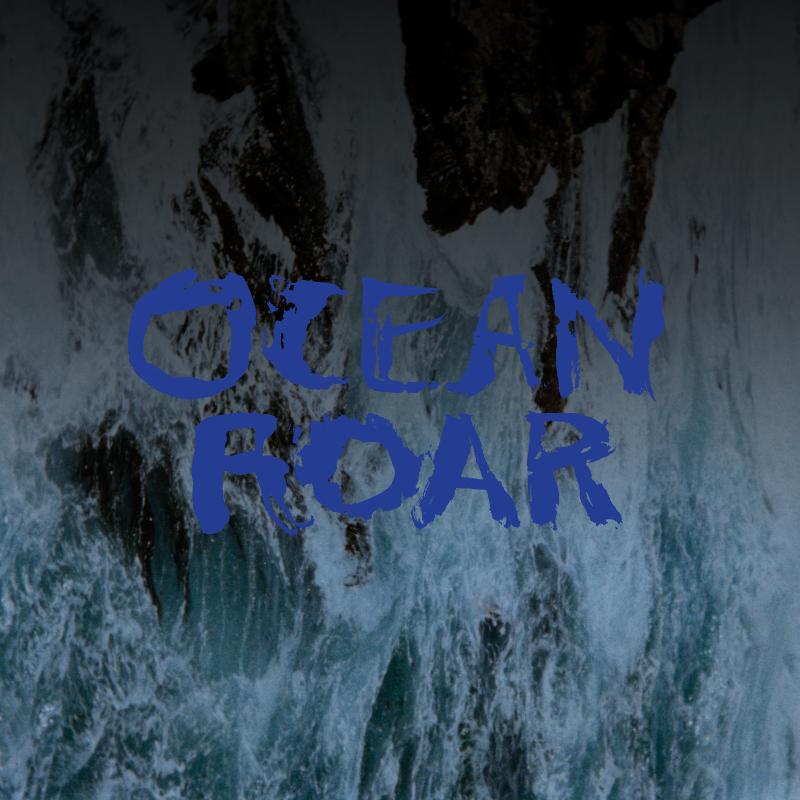As a collective, our world is obsessed with prophecy, but we don’t really know what to make of “prophecy” until the event we have been awaiting actually happens in its full force and nature. In a car accident, for instance, you’re driving as if it’s a regular day down your regular street and suddenly your vehicle makes contact with the other. After the sheer moment of panic in that brief, yet life-shaking event, time and thoughts rush: “what could have I done to change that?” Some mull around that it was a combination of choices that led them to that street into the side of that car, but others simply accept that it was prophecy — that it was meant to be.
This is the relationship between Mount Eerie’s Clear Moon and Ocean Roar. The more brutal of the pair of records, Ocean Roar, spends time not only providing closure to the fantastic Clear Moon, it creates its own grand, unique world of beauty and destruction that rests on simple personal experiences.
The album’s intro track “Pale Lights” pulls a The Glow Pt. 2/Mount Eerie, picking up ostensibly where Clear Moon ended, and then throwing that calming idea into the water of a song that quickly builds into a wall of sound. Something real wrong is happening from a distance and Phil Elverum can feel it as the music quiets down under him, singing “Pale lights from other islands, slow flashing through blue dusk across the water” and “A small yelp on the wind and then more roaring”. Later, the song bursts into noise again. The noise is no longer baffling territory for Phil Elverum, but a continuing illustration that he knows how to jar speakers and headphones like a professional.
Arguably one the strangest moments on the album is the title track, which feels calm and shaky, very in-line with Clear Moon, and it should be. “Pale Lights” is the thematic set up for what is to come while “Ocean Roar” is there to build from the present, and it’s intriguing, as are some of the production choices. Near the end of the the song, Elverum inserts free-source sound effects of children. It feels out of place and awkward, but at the same time it fits the sometimes intentional awkwardness of the album. These effects are thrown into sharp contrast by Ocean Roar‘s first instrumental track and one of its most eye-widening scenes: a slow-building piano track complimented by a serene, backgrounded wood flute.
The deep black metal influence from 2009’s Wind’s Poem returns on Ocean Roar, more cohesive and refined within its theme of waves crashing against a coastal line full of nature. “Waves” introduces the truly epic notions of water mutilating rock and sand underneath it, a particularly lifting moment from the rest of the record. As aggressive as it sounds, it feels as if there is something natural and giant happening and something that only most metal artists focus on achieving. As the grandiosity is coming into full force, he interrupts the music once again, but this time he concentrates music in between lyrical deliveries, making him sound herculean for the first time since Wind’s Poem. “Engel Der Luft (Popol Vuh)”, an insanely heavy, loving cover of a song from the Werner Herzog film Fitzcarraldo follows, and flows perfectly into the album’s peaceful and resolution “I Walked Home Beholding”. The mood and mind of Ocean Roar becomes immediately self-aware, spilling: “The world was frozen. I left the studio. The whole town had been abandoned except for me.” The storm is clear for now, but Elverum suggests that it won’t be for long — that where he lives, “there is a constant roaring.”
Ocean Roar ends on the same note that the bulk of it purveyed to the listener: chaos and beauty fighting inside itself to seemingly no end. It’s complex, destructive, and infinite. It harkens back to Clear Moon’s introduction, “Through the Trees, Pt. 2”: “The ‘natural world’ and whatever else it’s called, I drive in and out of town seeing no edge, breathing sky”. There is a certain mocking yet loving touch to nature in these albums: the passive sarcasm on Clear Moon to the grandiose guitar punches of Ocean Roar.
The idea of prophecy on the two records is not weighty as most prophecies get — it’s as simple as nature, a concept we all strive to understand, while living in a culture that fights it and pretends to feel guilty. Phil Elverum knows this and genuinely wants to make peace between nature and our own culture. Ocean Roar argues the natural world is more capable of destroying what we built than vice versa. It’s the opposite message from Clear Moon, making Ocean Roar a truly proper follow-up.


